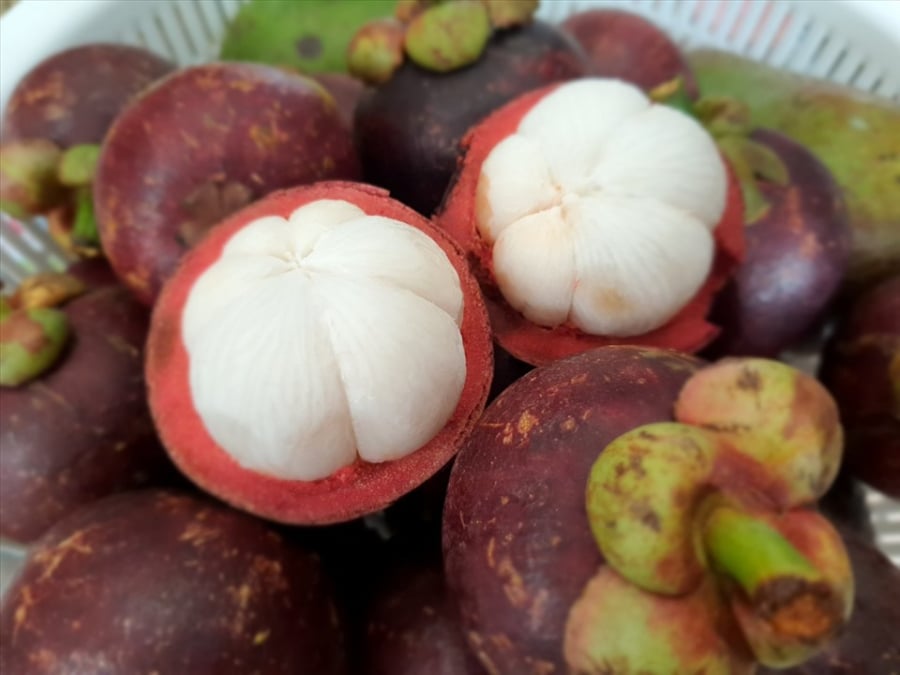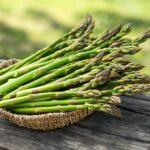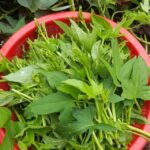Mangosteen: A Tropical Delight with Nutritional Benefits
Mangosteen is a delicious tropical fruit packed with nutrients. It boasts a high content of antioxidants, including xanthones, and is an excellent source of vitamin C, which boosts immunity. The fruit also contains fiber for healthy digestion and gut wellness. Additionally, mangosteen is a good source of potassium, magnesium, and manganese, which contribute to maintaining healthy blood pressure and cardiovascular function. Certain compounds in mangosteen also exhibit anti-inflammatory and skin-enhancing properties.
However, despite its numerous health benefits, there are some individuals for whom mangosteen may not be suitable:

People with Diabetes: Mangosteen is naturally sweet and contains a significant amount of sugar. Consuming large quantities at once can lead to a sudden spike in blood sugar levels for diabetics. Additionally, snacking on mangosteen regularly may result in consistently high blood sugar, making it challenging to manage their condition. Therefore, individuals with diabetes should limit their intake, consume it in moderation, and monitor their blood sugar levels after eating mangosteen.
Individuals with Allergic Tendencies: Although rare, some people have reported allergic reactions to mangosteen. Common symptoms include rashes, itching, swollen lips, or difficulty breathing. Those with allergic predispositions or a history of food allergies should be cautious when introducing mangosteen to their diet. If any abnormal symptoms occur after consumption, discontinue use immediately and seek medical attention.
Individuals on Blood-Thinning Medication: Mangosteen contains potent anti-inflammatory compounds, which may interfere with blood clotting. Individuals taking anticoagulant medication, such as warfarin, should exercise caution as mangosteen could reduce the drug’s effectiveness or lead to interactions, increasing the risk of bleeding. Consult your doctor or healthcare professional if you are on such medication and wish to include mangosteen in your diet.
Individuals with Digestive Disorders: Mangosteen is highly fibrous, and excessive consumption may cause digestive issues such as bloating, abdominal discomfort, diarrhea, or constipation, especially in those with a sensitive digestive system or conditions like irritable bowel syndrome. Individuals with stomach ailments, including reflux, should also limit their intake of this fruit.
Pregnant Women in Their First Trimester: Mangosteen has a cooling nature, and while it offers an array of vitamins and minerals, it may not be the ideal choice for pregnant women in their first trimester. Overconsumption may even lead to mild uterine contractions. Pregnant women should consult their doctors before including mangosteen in their diet to ensure the safety of both mother and child.
Individuals with Obesity or on a Weight Loss Regimen: While mangosteen is not high in calories, it contains natural sugars and can contribute to energy intake. Overconsumption may hinder weight loss efforts. The misconception that mangosteen can be eaten in unlimited quantities can lead to weight gain. Individuals on a diet should carefully control their portions when enjoying this fruit.
The Ultimate Superfood: A Powerful Cancer-Fighting Vegetable Hiding in Plain Sight
“In Vietnam, there is a humble vegetable that is both easy to cultivate and delicious to consume. With a price tag of just a few thousand dong, this vegetable is a powerful ally in the fight against cancer. Unfortunately, many people are unaware of its incredible benefits. This unassuming hero is a true ‘superfood’ in disguise.”



































